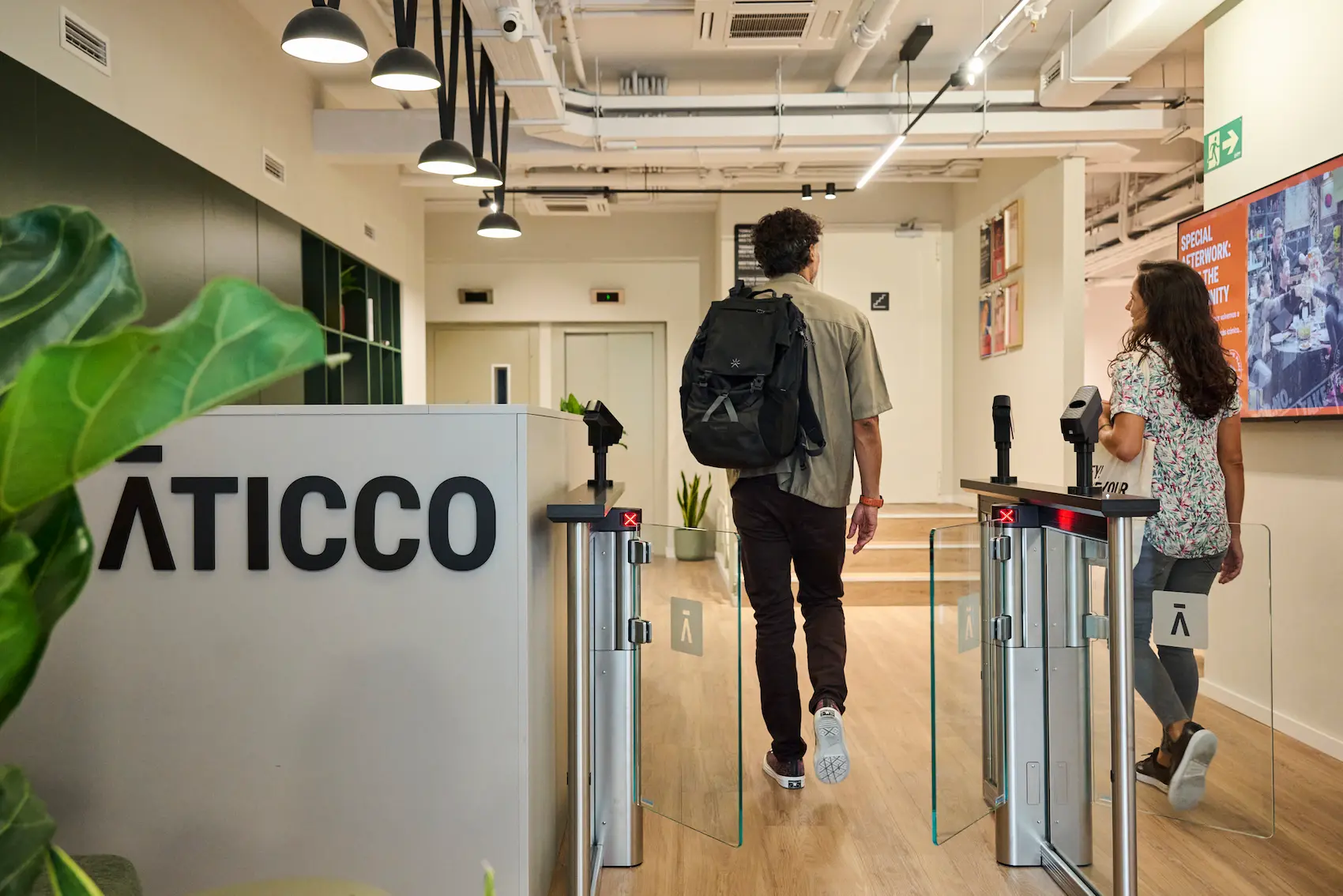What are the different types of self-employed workers?

Being self-employed means carrying out an economic activity independently, which has fiscal and legal implications that vary depending on the legal structure under which it is governed. There are different types of self-employed individuals and companies, determined by the activity they carry out or the regime under which they are taxed.
If you are thinking of starting a business in Spain, here we tell you about the different types of self-employed workers you can register as, and the main advantages of working for yourself.
Self-employed workers
Also known as "self-employed workers", this is the most common form of autonomous work. This class refers to individuals who carry out their activity independently, that is, without being linked to an employment contract for others.
In turn, self-employed workers are divided into two groups, depending on the type of activity they carry out, they can be classified as:
- Self-employed individuals who contribute for business activities in the Economic Activities Tax (IAE). For example, taxi drivers, transporters, hairdressers, hoteliers, etc.
- Artists and athletes, such as actors, musicians, circus performers, soccer players, tennis players, etc.
Freelancers or self-employed professionals
These are self-employed individuals who practice their profession independently and may or may not have employees in their charge. Normally, being a freelancer means that workers carry out their activities from home, but they can also do so from an establishment or a shared workspace such ascoworking, such as any of our coworking spaces in Barcelona. Take a more detailed look at what a freelancer is and the advantages of working as a freelancer.
This class of self-employed workers is divided into two categories:
- Members of professional associations: Workers who must be attached to a Professional Association and make contributions through it and not through the Special Regime for Self-Employed Workers (RETA). For example, lawyers, veterinarians, pharmacists, architects, etc.
- Non-members: Professionals who do not need to be members to carry out their activity and are included in the Economic Activities Tax (IAE). For example, translators, advertisers, makeup artists, designers, programmers, etc.
Corporate self-employed workers or entrepreneurs
They are professionals who have formed a commercial company through which they carry out their economic activity. Unlike the types of self-employed individuals who work individually and operate as natural persons, corporate self-employed individuals carry out their activity under the legal figure of a company.
Some of the most common commercial companies in Spain are:
- Limited Company (SL): In this type of company, the responsibility of the partners is limited to the capital contributed, that is, they will not have to respond with their own assets in any case.
- Public Limited Company (SA): It is a company formed by participations in which the capital is divided into shares, and the responsibility of each partner is proportional to the capital contributed.
Self-employed collaborators
In this type of self-employed worker, all those professionals who work with their spouse or with direct relatives up to the second degree of consanguinity are classified. In this case, the owner must be registered as self-employed in order to hire a family member as a collaborating self-employed worker.
The main difference between this and the other classes is that the collaborator is not obliged to present the Value Added Tax (VAT) return or the fractional payment of the Personal Income Tax (IRPF).
Economically dependent self-employed workers or TRADE
A self-employed worker is considered economically dependent (TRADE) when at least 75% of their income comes from a single client, but does not have a commercial contract with that client.
Some of the requirements that must be met to be within this class of self-employed workers are:
- Not having workers in their charge, nor subcontracting to third parties.
- Having the materials, infrastructure and resources necessary to carry out the professional activity.
- Invoice the client for remuneration for their services.
Agricultural self-employed workers
Self-employed workers who dedicate themselves exclusively to agricultural activities are called agricultural self-employed workers. These types of workers contribute through the Special System for Self-Employed Agricultural Workers (SETA). Some requirements that professionals must meet to contribute to SETA are:
- Possess ownership of an agricultural operation, and obtain at least 50% of income from it.
- Personally carry out the agricultural activity on the farm.
Characteristics and main advantages of being self-employed
Some characteristics that define a self-employed worker, and which represent the main advantages of this labor regime, are:
-
Flexibility and autonomy
Self-employed workers have the freedom to set their own goals and make decisions about the work they do. They also have the possibility to establish their own schedule, which allows them to balance their personal and professional lives.
-
Work from anywhere
Similarly, freelancers can decide where they want to carry out their activity. Whether it's from home, a coworking space like the various coworking spaces in Madrid that we offer, or traveling around the world, they have the flexibility to choose the space that best suits their needs and goals.
-
Selection of projects and clients
Salaried workers generally cannot decide the type of projects or the clients they work with; however, the self-employed have the option to decide who to collaborate with and the type of projects they want to work on to develop their skills, specialize, or diversify their area of expertise, and achieve their professional goals in general.
-
Growth potential
As the owner of their personal brand, the self-employed professional has the possibility to scale their business and grow, hire a team, participate in multiple projects, and increase their earnings. At the same time, they can have continuous professional development, diversify their work experience, and explore new areas of knowledge.
Profitability of being self-employed VS company
When starting a business, you will need to choose the appropriate legal structure and register as a self-employed individual or create a company. This will depend on factors such as the type of economic activity you will carry out, the expenses and income associated with the activity, and the objectives you set for your business, among others.
These are some parameters that you can consider to evaluate the profitability of both options and choose the one that best fits your business:
-
Economic responsibility
The self-employed have unlimited financial liability, meaning they are liable with their personal assets for the debts and obligations of their business, which can represent a financial risk. On the other hand, in a corporation, the liability is limited; the partners and shareholders are only liable for the capital contributed to the corporation, thus protecting their personal assets.
-
Taxation
The activity of the self-employed worker is regulated by the Personal Income Tax (IRPF), which is a progressive tax and implies that as the profits of the business grow, the tax to be paid will also increase. While companies are regulated by the Corporate Tax (IS), which is a fixed tax of 25%, but is often lower due to the deductions that companies can access under this legal figure.
-
Costs
In general, being self-employed implies less costs and bureaucratic procedures, both at the time of registration and during the management of the business. For example, in order to register in either of the two legal entities it is necessary to register with the tax authorities, but in the case of a company it is also necessary to incorporate it in the commercial registry. In addition, both must adapt to technological changes such as the mandatory or recommended implementation of digital systems, such as electronic invoicing, which may require additional initial investments but significantly improves administrative efficiency. On the other hand, the business structure of a company can make it easier to obtain external financing or to attract investment.reguntasReguntasRcuentes sobre los tipos de autónomos
How is the category of self-employed workers determined?
There are different regimes and categories for self-employed workers that depend mainly on the type of economic activity to be developed and the estimated income level.
Here I will tell you a little about these two main factors that determine the category of self-employed workers and that could help you choose the one that best suits your business:
- Economic activity: The type of activity to be carried out is an important factor because there are categories linked to a specific activity. For example, agricultural self-employed workers contribute through the Special System for Self-Employed Agricultural Workers (SETA), instead of the Special Regime for Self-Employed Workers (RETA), like other self-employed workers who provide their professional services.
- Estimated income: The projected income level can help determine the category of a self-employed worker. For example, if 75% or more of your business income comes from a single client, you fall into the economically dependent category (TRADE). On the other hand, the contribution regime may also change if a certain annual income threshold is exceeded.
What regime does a freelancer have?
The regime to which self-employed workers in Spain are assigned is the Special Regime for Self-Employed Workers (RETA). When registering to carry out an economic activity independently, self-employed workers must contribute to RETA.


